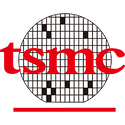This Week in Gaming (Week 18)
As we go from April to May, we have something of a void of new game releases, with the biggest release being a game that puts you in charge of a factory. As for the rest of this coming week's releases, you can look forward to doing some farming, working as a detective, cosplaying as an alien, working in a lab and finishing the week in office with a party royale.
Foundry / This week's major release / Thursday 2 May / Early Access
Foundry is a first-person (first-robot?) factory builder with complete creative freedom set in a procedurally generated and infinite voxel world. Land on an unexplored planet and design a giant automated robot production facility under the watchful direction of your AI friend, Carl. Steam Link
Foundry / This week's major release / Thursday 2 May / Early Access
Foundry is a first-person (first-robot?) factory builder with complete creative freedom set in a procedurally generated and infinite voxel world. Land on an unexplored planet and design a giant automated robot production facility under the watchful direction of your AI friend, Carl. Steam Link
























































